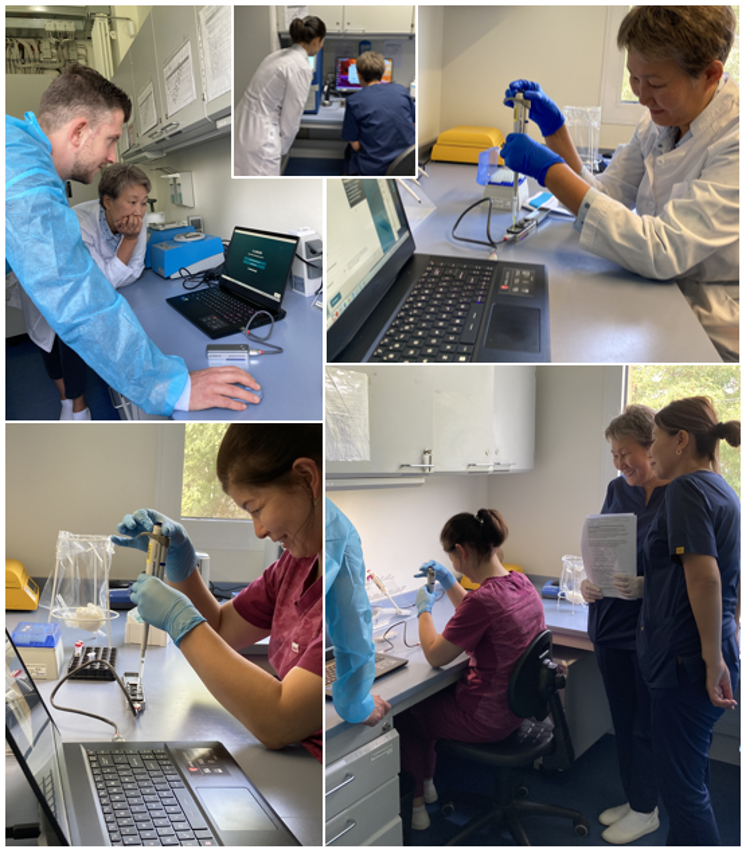For the Dream Fund project ‘No More Pandemics’, funded by the Dutch Postcode Lottery, Kristin Kremer, the project Technical Lead, and Noud Hermans, PhD Student, visited Bishkek, Kyrgyzstan, from 11 to 22 September, to provide technical assistance to the implementation of nanopore sequencing for the detection of tuberculosis (TB) and drug resistance using a MinION device.

Week 1
The KNCV headquarters (HQ) representatives kicked off their visit by meeting with the National TB Program (NTP) to introduce the project team and discuss the planning of the visit. During the first week of their visit, they supported the National Tuberculosis Reference Laboratory (NRL) team to perform the first two nanopore sequencing analysis in Kyrgyzstan ever and these were successful!

The team also visited the laboratory of the State Epidemiology Service (SES) and had meetings with the head of the SES and the head of the virology laboratory, among others. The SES will play an important role in sequencing of SARS-CoV-2 and other pathogens later in the project.
Additionally, Kristin, Noud, and the NRL and KNCV Kyrgyzstan teams, discussed the first nanopore sequencing results and prepared the activities for the next week. At the end of the first week, Kristin presented the Dream Fund project and the first nanopore sequencing results in Kyrgyzstan to representatives from the Kyrgyz National TB program.
Week 2
The second week started with a half-day official launch of nanopore sequencing. This constituted a round table discussion with over 35 relevant national stakeholders. Presentations from the NTP and NRL directors, as well as from KNCV, the Dutch National Institute of Public Health (RIVM) and Oxford Nanopore Technologies (ONT), were followed by lively discussions.
All the heads of laboratories, representatives of the NRL, and KNCV Kyrgyzstan stayed on for another half day for a general training on next generation sequencing and experiences with sequencing in the Kyrgyz Republic. During this training, the participants were provided with the theoretical background and an insight into the laboratory procedures of next generation sequencing technologies. Furthermore, experiences with next generation sequencing in the Kyrgyz Republic were presented.
During the next three days eight people, including four persons from sub-national laboratories, were trained on the theory and hands-on practice of nanopore sequencing for the diagnosis of drug resistant TB using the MinION, including the data analysis.

During the visit of the KNCV HQ team to Kyrgyzstan, the project planning, study protocol, and the plans for the two PhD students were also discussed. In addition, the laboratory work and the trainings were evaluated. It was concluded that the trainings were successful and that the first results of the ONT assay for TB were promising. Critically, the laboratory personnel were able to execute the assay themselves and the first local clinical samples were tested with the assay.

